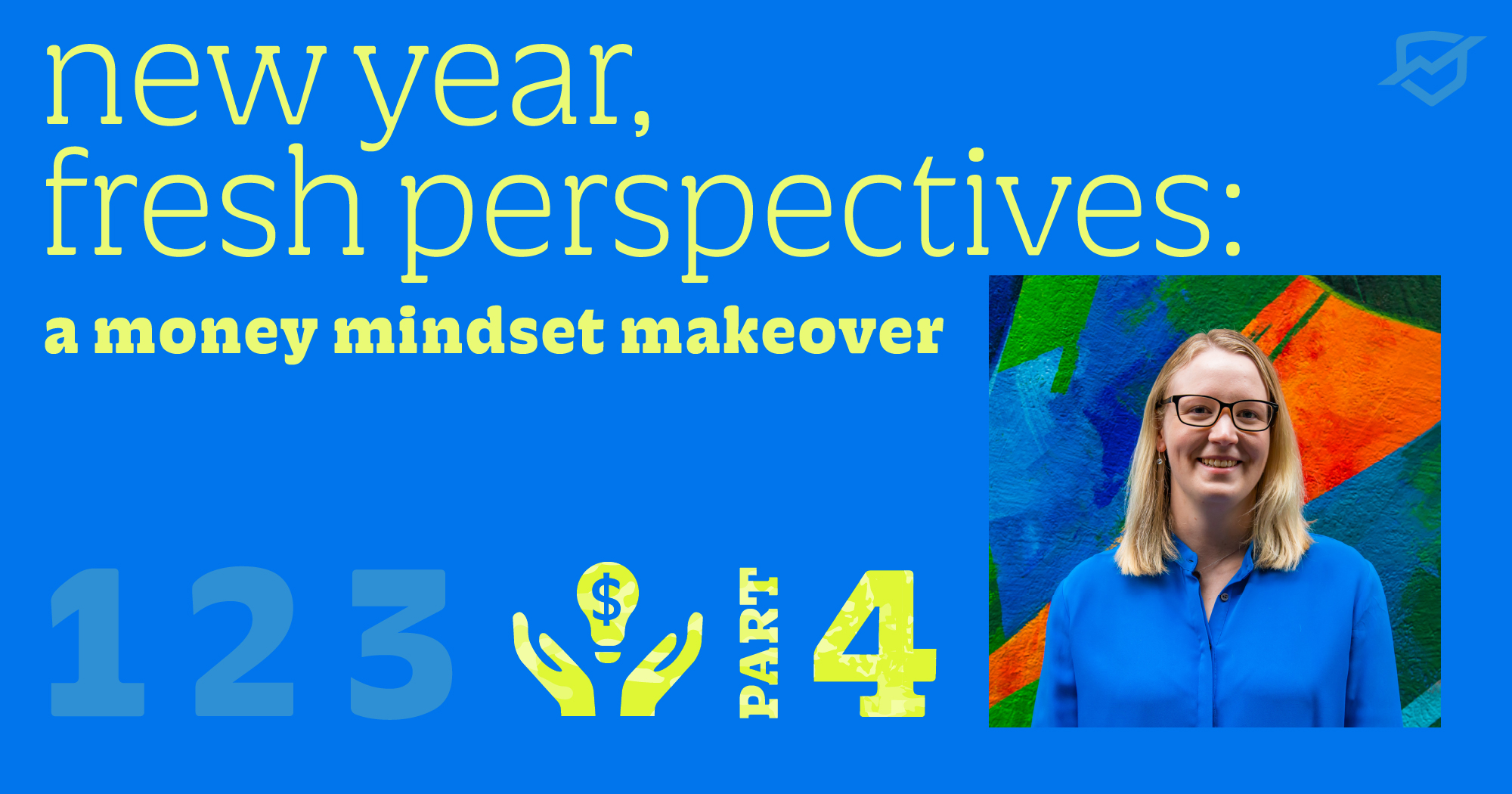
As you work through setting up your financial foundations, look more closely at your money story and start to think about how you want to spend your time and money, you may have already found yourself running up against some roadblocks.
This is normal.
You’re doing something new, challenging your past choices, and thinking about what could be possible in your future, and your brain will be coming up with a whole range of reasons why you can’t do these things. These thoughts and stories that we tell ourselves, and that are actually keeping us from working towards the things we’d like to achieve, are called ‘limiting beliefs’.
These are just some of the common limiting beliefs people have around money.
Though these thoughts are completely valid, they can limit your ability to take control of your financial future. The thing is, we all have unique backgrounds and a wide variety of experiences with money.
If you identify with one or more of these beliefs, I want you to start by asking whether this mindset is currently serving you. Has this thought pattern or story you’ve been telling yourself helped you on your money journey?
Listeners of The Australian Finance Podcast have told me that many of these statements are reasons they haven’t taken control of their own financial future, and the World Economic Forum found similar results globally when they asked people why they hadn’t invested yet. Though you mightn’t be able to set aside these long-held beliefs immediately, education plays a big part in building your financial confidence over time. Acknowledging your current situation is the first step to improving it.
So, let’s go back to some of those common limiting money beliefs and think about some strategies to overcome them. I’ve included a few ideas, but get creative, do some research and have a think about what might work for you.
One of the biggest misconceptions about managing your money and investing well is that it has to be complicated. You don’t need a PhD, some fancy finance qualification or even to be good with numbers to set yourself up financially, but everyone needs to have a basic understanding of what they are doing and manage their behavior accordingly.
Maybe you’re not good with money yet. So, keep learning and schedule some time in your calendar to learn one thing about your finances each week. You can directly challenge this statement by taking action on a regular basis.
Find 15 minutes a day or an hour a week in your calendar to work on your finances and stick to it. Committing this time now will pay off massively for future-you. Time is just how we allocate our priorities; there will always be too much to do, so break the task down and prioritize it.
This is a common belief that stops people from ever taking the first step on their investing journey. Small amounts have a huge impact on your future if you give them time to grow. Many investors started where you are right now, so just take it one step at a time and think about your ‘why’.
Not making a choice is still a choice. You don’t need a perfect plan to start — you can learn as you go. Schedule in time to do the work, figure out your financial starting point and go from there. One step at a time!
Your challenge now is first to identify one of your limiting money beliefs and then experiment with ideas for tackling that belief. You might need to try out a couple of strategies before you find a solution, but stick with it.

Kate Campbell is the host of the Australian Finance Podcast and the author of Buying Happiness: Learn to invest your time and money better, available online through Amazon and Booktopia.